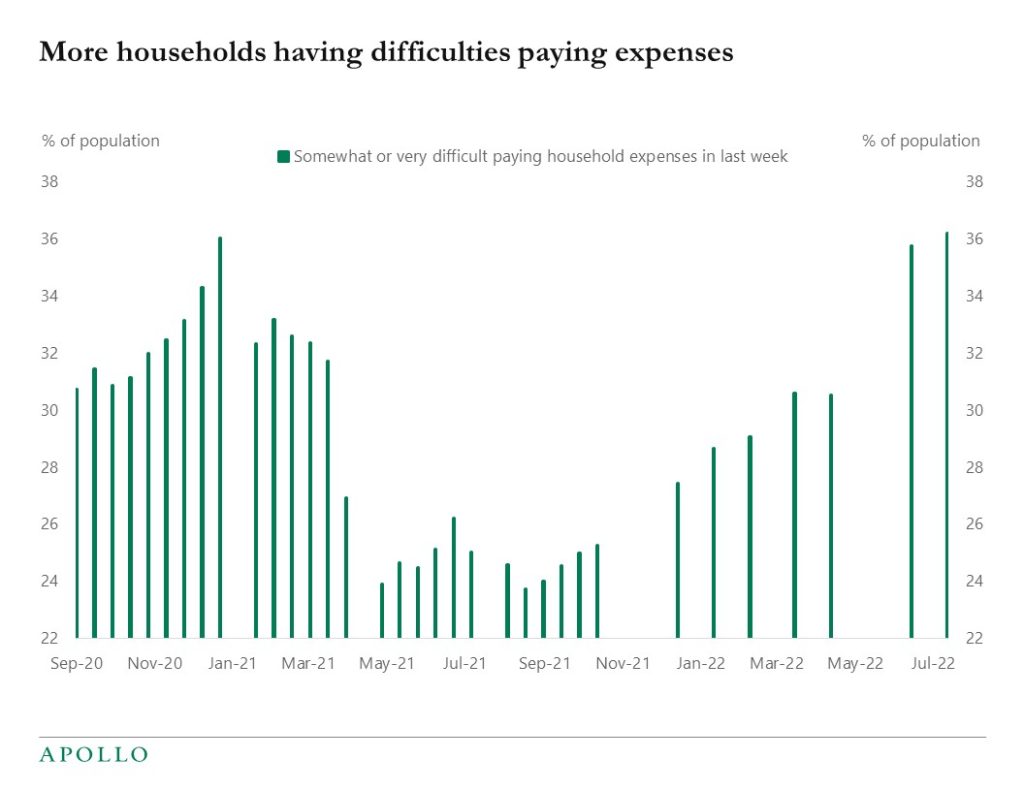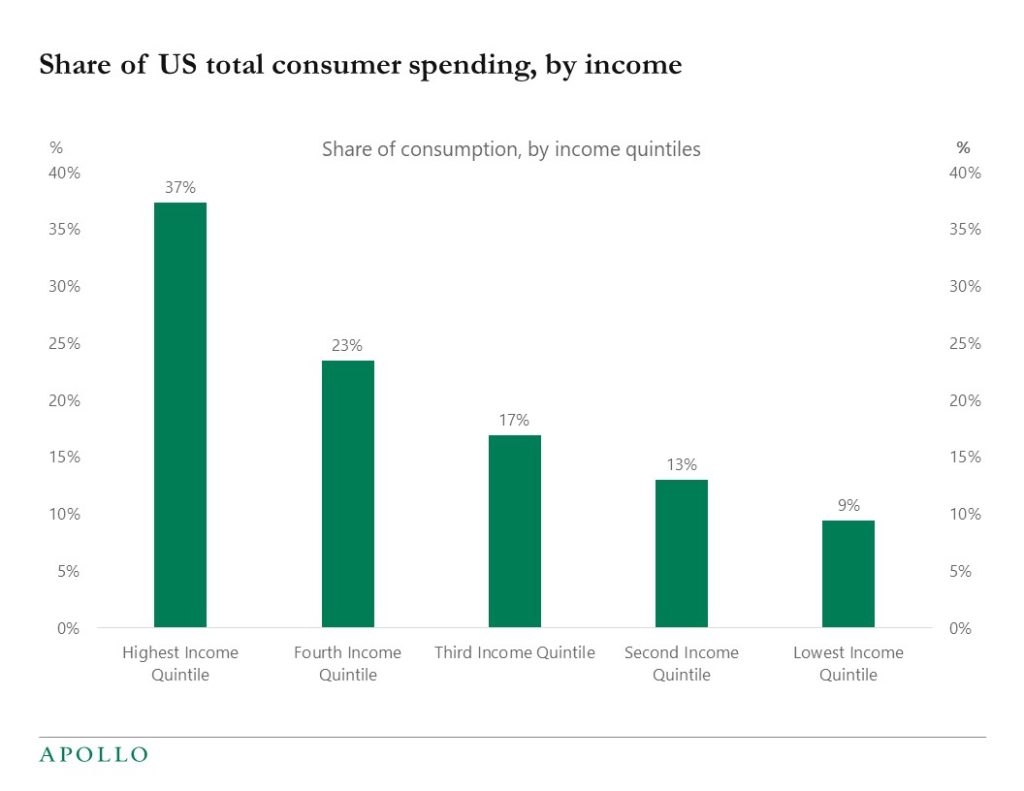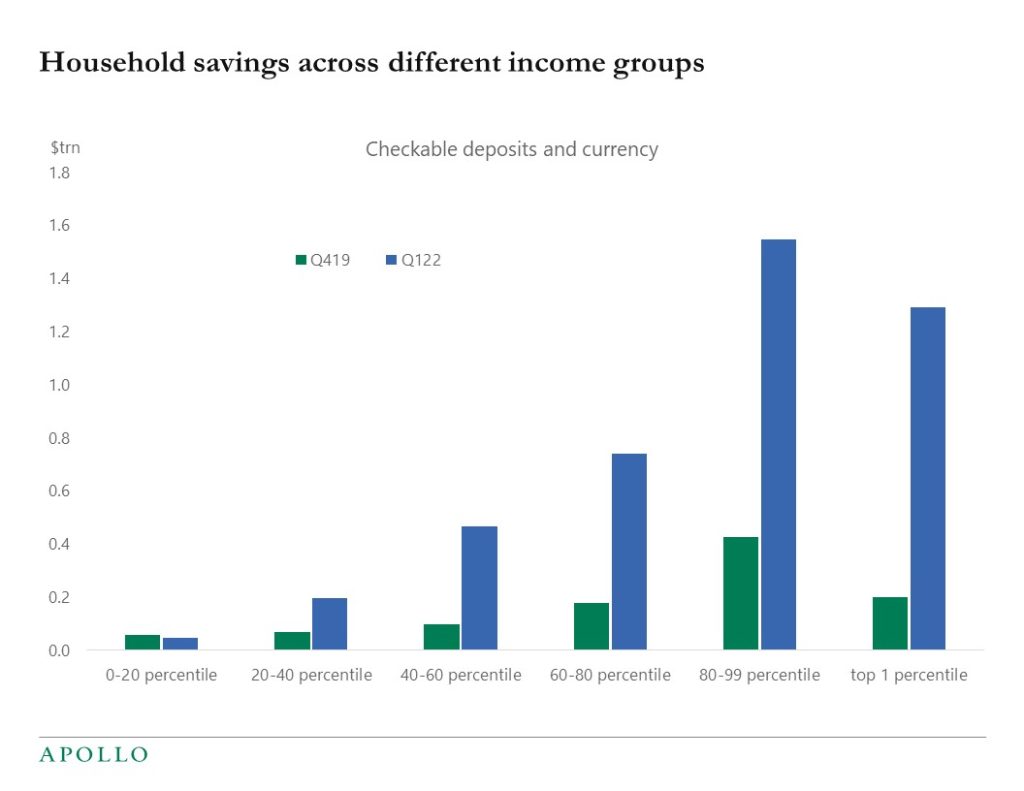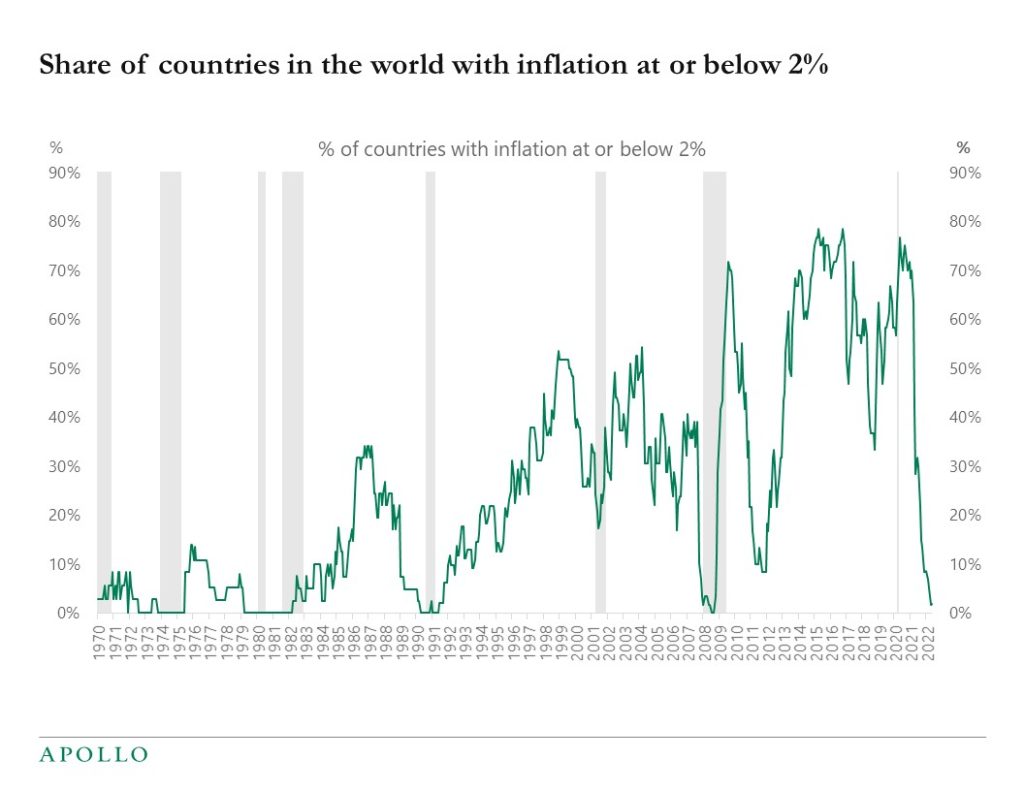Predictably Bad Investments: Evidence from Venture Capitalists
https://papers.ssrn.com/sol3/papers.cfm?abstract_id=4135861
Central Bank Communication with the General Public
Directed Search with Phantom Vacancies


Predictably Bad Investments: Evidence from Venture Capitalists
https://papers.ssrn.com/sol3/papers.cfm?abstract_id=4135861
Central Bank Communication with the General Public
Directed Search with Phantom Vacancies
Consensus continues to downgrade growth expectations, and Treasury markets are starting to price a recession coming.
This narrative in rates is in sharp contrast to the story being told in equity and credit markets, where the consensus has only revised down earnings expectations very modestly, see chart below.
The bottom line is that rates investors and Fed watchers are getting increasingly worried about a coming recession, but equity investors are much more bullish and see little reason to downgrade earnings expectations meaningfully.
Our chart book with daily and weekly indicators for the US economy is available here.

Weekly data shows that a rising share of households say that they have difficulties paying their expenses, see chart below.

The costs of electricity for European households and firms are currently five to ten times higher than normal, and this is a serious risk to the outlook for Europe, see chart below.

With Walmart’s earnings out, the debate about the health of the US consumer is heating up again.
Wage growth is high, and job creation is strong, but inflation is starting to have a negative impact and trigger substitutions and changing consumption patterns.
From a rates and Fed perspective, what matters is growth in overall consumer spending. The top 60% of incomes account for almost 80% of total consumer spending, and with significant savings left among middle- and high-income households, it will take some time before overall consumer spending starts to slow down, see charts below.
The bottom line is that the Fed will have to raise rates more than the market expects to successfully cool the economy down. And faster Fed hikes increase the risk of a harder landing and deeper yield curve inversion.




Watch Apollo CEO Marc Rowan and Lead Portfolio Manager Matt O’Mara discuss how alternatives might help investors address a unique challenge they’re facing today: How the end of a long period of loose monetary conditions—combined with other secular shifts taking place in financial markets today—have coalesced to challenge the long-held mantra that a 60/40 portfolio of public equities and bonds is the key to a successful retirement plan.
The weekly data for same-store retail sales have increased over the past two months, see chart below. The sources of strong consumer spending are significant household savings, robust job creation, solid wage growth, and the rebound in the stock market since mid-June. The continued strength of US consumer spending is quite worrying for the FOMC, given they are trying to cool the economy down.
Ultimately consumer spending will slow down because that is what the Fed wants. The question is just how long it will take before we begin to see it in the data.
The bottom line is that the Fed may have to increase interest rates more than the market currently is pricing in to slow down growth and inflation.


A long-held mantra—that a diversified portfolio of public equities and bonds is the key to a successful retirement plan—is now being challenged by secular shifts taking place in financial markets today, including the end of the monetary printing press that started in 2008. What’s an investor to do? Lead Portfolio Manager Matt O’Mara tackles this question in our latest white paper.
Key Takeaways
Using the global BIS database, there are currently zero countries in the world with inflation below 2%, see chart below.
This fact raises the question whether US inflation is really something special driven by stimulus checks, higher unemployment benefits, and PPP loans.
Maybe the simple explanation is that inflation in the US is not driven by fiscal policy or even monetary policy, as our economics textbooks would say.
Instead, inflation went up literally everywhere in the world because of supply problems in the goods sector and in the energy sector. If this is the case, then inflation will soon come down once the supply chain problems in the goods and energy sectors have been resolved.
The bottom line is that with falling commodity prices and falling costs of transporting goods by container, truck, train, and air, we could see a sharp decline in inflation over the coming months. At least, the global nature of inflation seen in the chart below suggests that there is really nothing special about US inflation.


Housing starts and permits and existing home sales data from last week indicate that the US housing market remains strong but is starting to gradually slow. In the week ahead, we will be closely following this week’s FOMC meeting. The consensus expects that another interest rate hike of 75 basis points will be announced as the Fed continues to try to cool the economy in the hopes of combating elevated inflation. One important trend we’ve also been consistently tracking is the fairly steep decline in global transportation costs. This is potentially telling us two things: 1.) Supply chains are improving: This is a positive development as supply chain disruptions have remained a significant drag on growth since the start of the pandemic. 2.) The economy is slowing down: Shipping, freight, and related costs could be dropping simply because there’s less demand for goods globally. This may be signaling that the global economy is slowing—perhaps more substantially than expected. The bottom line is we expect to see inflation come down over the next six to nine months and we are carefully watching for signs of a hard or soft landing in that context.
This presentation may not be distributed, transmitted or otherwise communicated to others in whole or in part without the express consent of Apollo Global Management, Inc. (together with its subsidiaries, “Apollo”).
Apollo makes no representation or warranty, expressed or implied, with respect to the accuracy, reasonableness, or completeness of any of the statements made during this presentation, including, but not limited to, statements obtained from third parties. Opinions, estimates and projections constitute the current judgment of the speaker as of the date indicated. They do not necessarily reflect the views and opinions of Apollo and are subject to change at any time without notice. Apollo does not have any responsibility to update this presentation to account for such changes. There can be no assurance that any trends discussed during this presentation will continue.
Statements made throughout this presentation are not intended to provide, and should not be relied upon for, accounting, legal or tax advice and do not constitute an investment recommendation or investment advice. Investors should make an independent investigation of the information discussed during this presentation, including consulting their tax, legal, accounting or other advisors about such information. Apollo does not act for you and is not responsible for providing you with the protections afforded to its clients. This presentation does not constitute an offer to sell, or the solicitation of an offer to buy, any security, product or service, including interest in any investment product or fund or account managed or advised by Apollo.
Certain statements made throughout this presentation may be “forward-looking” in nature. Due to various risks and uncertainties, actual events or results may differ materially from those reflected or contemplated in such forward-looking information. As such, undue reliance should not be placed on such statements. Forward-looking statements may be identified by the use of terminology including, but not limited to, “may”, “will”, “should”, “expect”, “anticipate”, “target”, “project”, “estimate”, “intend”, “continue” or “believe” or the negatives thereof or other variations thereon or comparable terminology.